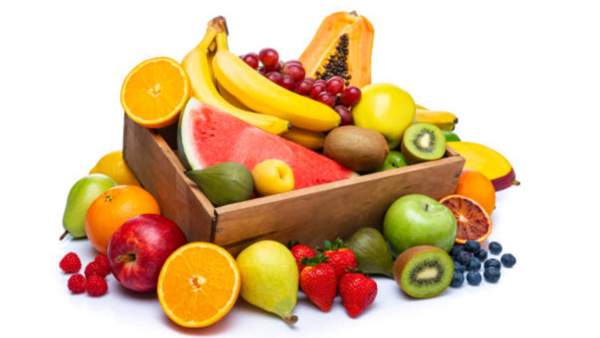Fruits are often a subject of debate when it comes to diet and diabetes. A recent statement by a nutritionist suggesting that eating fruits on an empty stomach could increase the risk of diabetes has sparked discussion. But is there any truth to this?

Dr. Santhosh Jacob, an orthopedic and sports surgeon, addresses this concern, asserting that consuming whole fruits is not only safe but also beneficial for individuals managing diabetes.
Fruits are primarily composed of water (approximately 80%), alongside fructose, glucose, sucrose, and fiber. According to Dr. Jacob, these components have a minimal impact on blood sugar levels when consumed in their whole form.
Dr. Jacob explains that the consumption of whole fruits typically results in a modest increase in blood sugar, around 30 milligrams per deciliter over a two-hour period, before returning to normal. This controlled response makes whole fruits a safe option for people with diabetes, even when eaten on an empty stomach.

Furthermore, the fiber, polyphenols, and short-chain fatty acids found in fruits contribute to a healthy gut by nourishing beneficial bacteria, contradicting claims that fruit can disrupt gut flora.
The belief that eating fruit on an empty stomach is detrimental often arises from misunderstandings about rapid gastric emptying and sugar absorption. Dr. Jacob clarifies that while fruits are digested relatively quickly, their fiber content prevents abrupt spikes in blood sugar. Fears about fruits "washing out" gut bacteria are also unfounded.
"The only things which could actually wash out your gut bacteria are high amounts of alcohol, overdose of antibiotics, or chemotherapy drugs," he states.
Research supports the consumption of whole fruits, with meta-analyses indicating that eating approximately 250 grams of whole fruits daily can reduce the risk of diabetes and metabolic issues.

Dr. Jacob emphasizes that lifestyle factors play a significant role in the development of diabetes. He identifies several key contributors:
Dr. Jacob concludes that whole fruits, packed with nutrients and fiber, can be beneficial for those seeking to manage or prevent diabetes.
Newer articles
Older articles
 Emma Raducanu Shuts Down Carlos Alcaraz Dating Rumors, Confirms US Open Mixed Doubles Partnership
Emma Raducanu Shuts Down Carlos Alcaraz Dating Rumors, Confirms US Open Mixed Doubles Partnership
 Woakes Regrets Umpiring Decisions as India Seize Control on Day 1 at Edgbaston
Woakes Regrets Umpiring Decisions as India Seize Control on Day 1 at Edgbaston
 Black Caps Primed for Blockbuster Home Summer Against Cricket Giants
Black Caps Primed for Blockbuster Home Summer Against Cricket Giants
 Gambhir Defends India's Tailenders After Test Collapse, Cites Missed Catches as Key Factor
Gambhir Defends India's Tailenders After Test Collapse, Cites Missed Catches as Key Factor
 SA20 Teams Given Green Light for Six Player Retentions Ahead of Auction
SA20 Teams Given Green Light for Six Player Retentions Ahead of Auction
 Rishabh Pant: Revolutionizing Cricket with Unconventional Batting, Says Greg Chappell
OR
Greg Chappell Hails Rishabh Pant as Cricket's "Reinventor"
Rishabh Pant: Revolutionizing Cricket with Unconventional Batting, Says Greg Chappell
OR
Greg Chappell Hails Rishabh Pant as Cricket's "Reinventor"
 Mirabai Chanu: Olympic Medalist's Relentless Training Regimen Extends Even to Family Time
Mirabai Chanu: Olympic Medalist's Relentless Training Regimen Extends Even to Family Time
 Rishabh Pant's "Game-Changing" Centuries vs. England Earn Praise From Greg Chappell
Rishabh Pant's "Game-Changing" Centuries vs. England Earn Praise From Greg Chappell
 Small Steps, Big Heart: Science Reveals Simple Habits for Optimal Cardiovascular Health
Small Steps, Big Heart: Science Reveals Simple Habits for Optimal Cardiovascular Health
 Kavya Maran, SRH CEO, Addresses Viral Meme Status and Passion for Cricket Team
Kavya Maran, SRH CEO, Addresses Viral Meme Status and Passion for Cricket Team